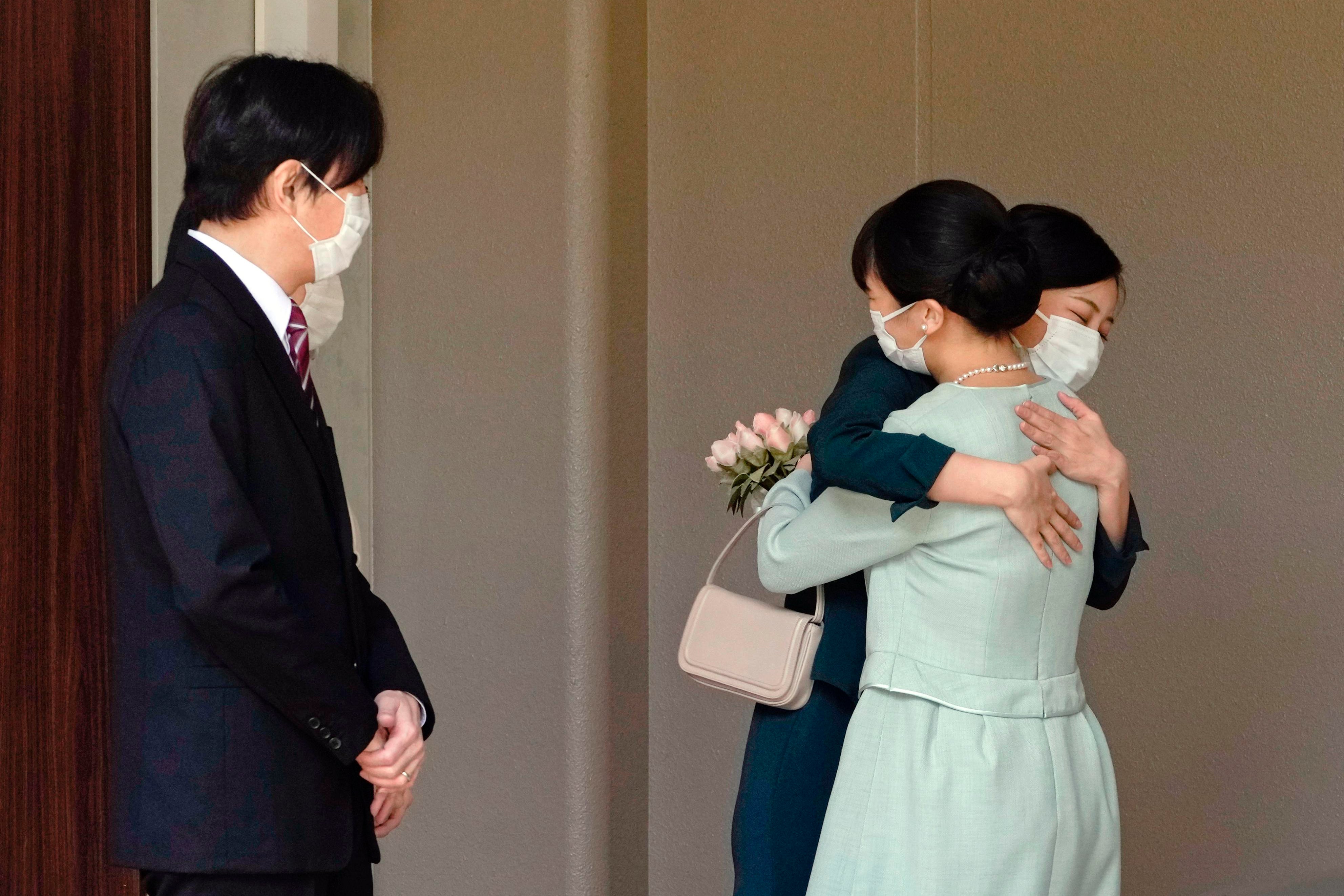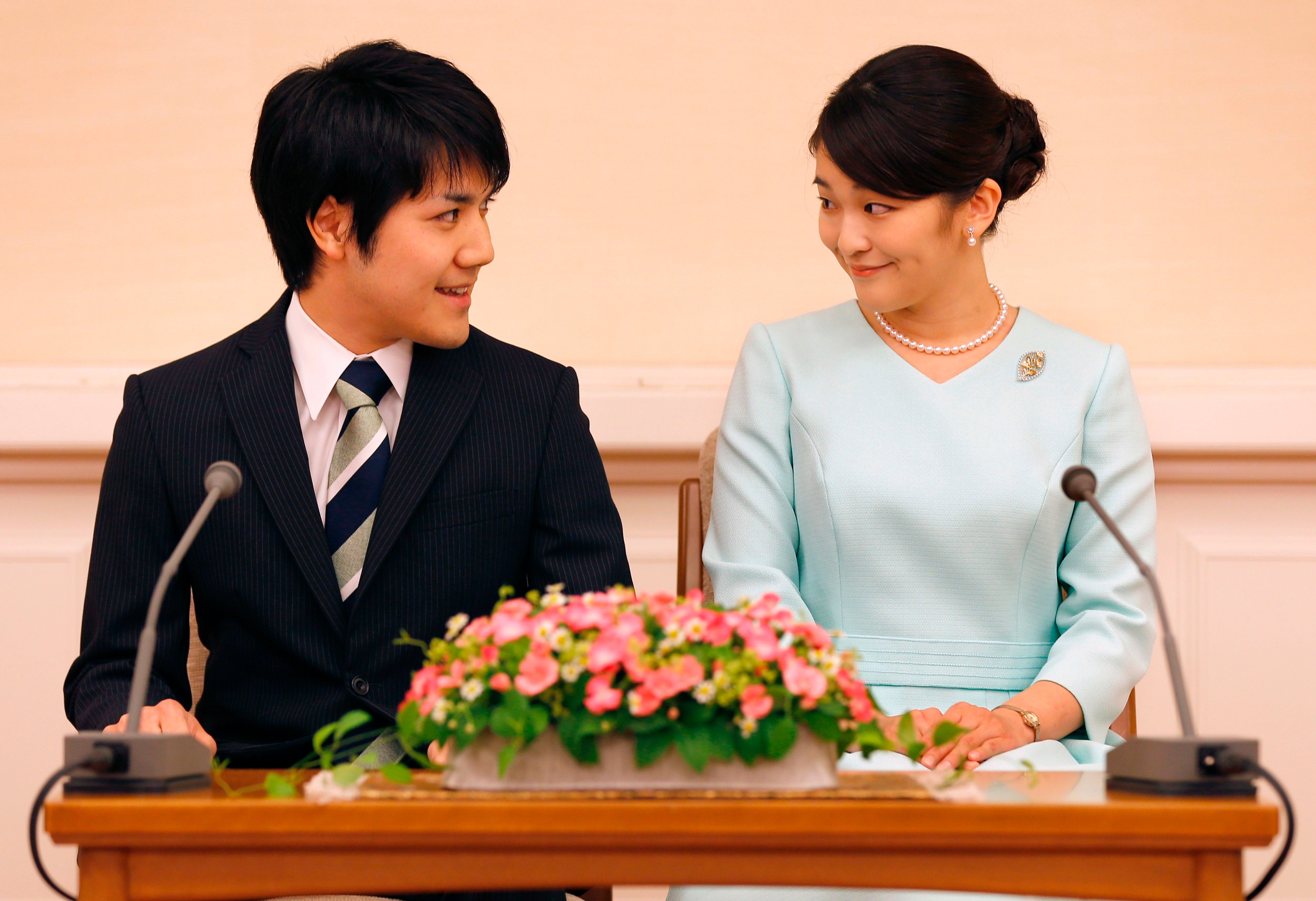Japan’s Princess Mako finally marries ‘commoner’ boyfriend Kei Komuro – and is immediately stripped of royal status
The newlyweds are expected to move to the US soon
Japanese Princess Mako formalised her marriage with college lover and commoner boyfriend Kei Komuro on Tuesday and forfeited her royal status as dictated by Japanese law.
Bringing their long-term relationship to fruition, the couple registered their marriage by signing paperwork at a local office in Tokyo’s Akasaka estate in the morning, according to the Imperial Household Agency.
Ms Mako and her husband’s union, heavily criticised on the domestic front, was not a lavish, royal affair and did not have any elaborate rituals such as a grand reception by the Imperial family of Japan.
She also rejected a monetary payment of 150 million yen (around £955,000) handed out to the female members of royal families who marry commoners and leave their family after marriage. She is the first woman from the royal family to deny both — rituals and the monetary gift.
Ms Mako, dressed in a pale blue dress and holding a bouquet of flowers, left her home around 10am on Tuesday after bowing to her parents Crown Prince Fumihito and Crown Princess Kiko and hugging her younger sister Princess Kako. She waved to her parents before her car left the royal family’s residence.

Her partner Mr Komuro bowed to cameras gathered outside his house as he left in a crisp dark suit and tie.
The two have decided to forgo a formal meet with Mako’s uncle and aunt, Emperor Naruhito and Empress Masako before leaving Tokyo.
The newlyweds are expected to address the media in a news conference later in the day and make a brief statement. Ms Mako and her husband will also hand out written answers to five pre-selected questions.
“Some of the questions took mistaken information as fact and upset the princess,” an official from the Imperial Household Agency, according to Japanese public broadcaster NHK.
However, the written answers will be handed out because Ms Mako “feels a strong sense of anxiety” about answering questions verbally, the official added.

The couple, who met in 2012 at Tokyo’s International Christian University, will soon move to the US, where Mr Komuro studied and practises law. Ms Mako will also start her commoner employee life in New York at a Manhattan law firm.
Years-long efforts to bring their relationship to fruition has been marred by controversy and strong disapproval from the general public, the press and political conservatives.
The struggle of marrying a commoner and excessive sensationalist media coverage has left Ms Mako with post-traumatic stress disorder, palace doctors have said.
In line with criticism commoners receive after being wedded in the royal family’s fold, Mr Komuro has been under intense scrutiny, especially from Japan’s media. In the most recent display, Mr Komuro was heavily criticised for sporting a ponytail when he returned to Japan from the US last month, as media reports frowned upon the “unbecoming” hairstyle of someone marrying the princess.
The radical shift in national mood for the wedding came as a surprise for many, as the couple were perceived to be an ideal pair after they had announced their engagement in May 2017. Public perception had then seemed to be in the favour of the happy couple.
One of the main hurdles that suspended the marriage for years stemmed from a financial dispute involving Mr Komuro’s mother over the spending of $36,000 (£26,200). She took the money from her former fiancé to pay for her son’s education, sparking debate on whether the money was a gift or a loan.
Join our commenting forum
Join thought-provoking conversations, follow other Independent readers and see their replies
Comments
Bookmark popover
Removed from bookmarks